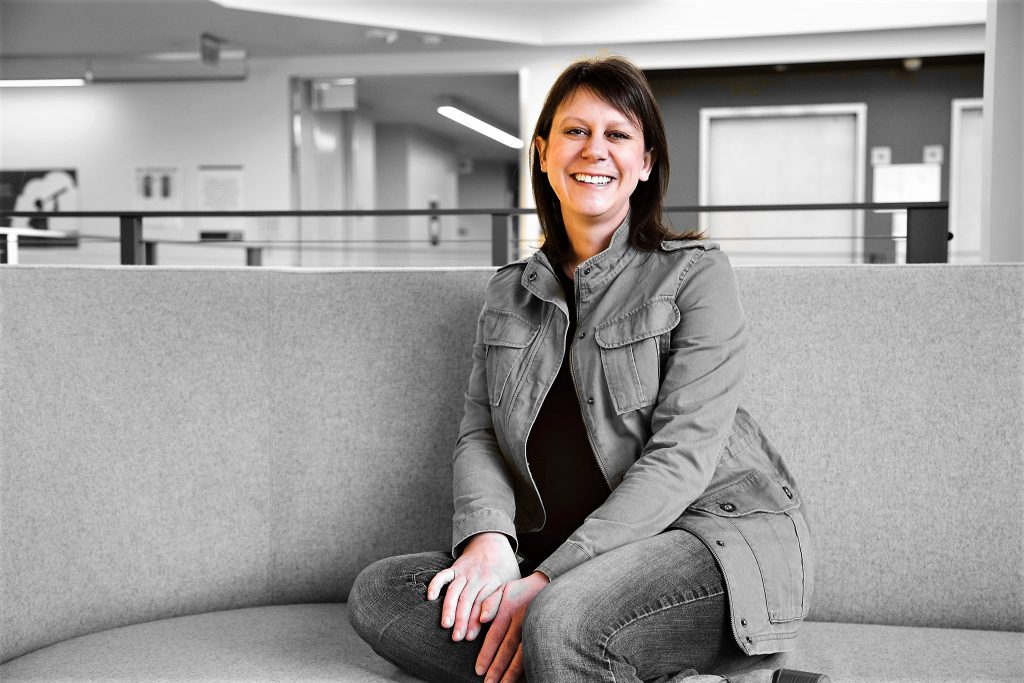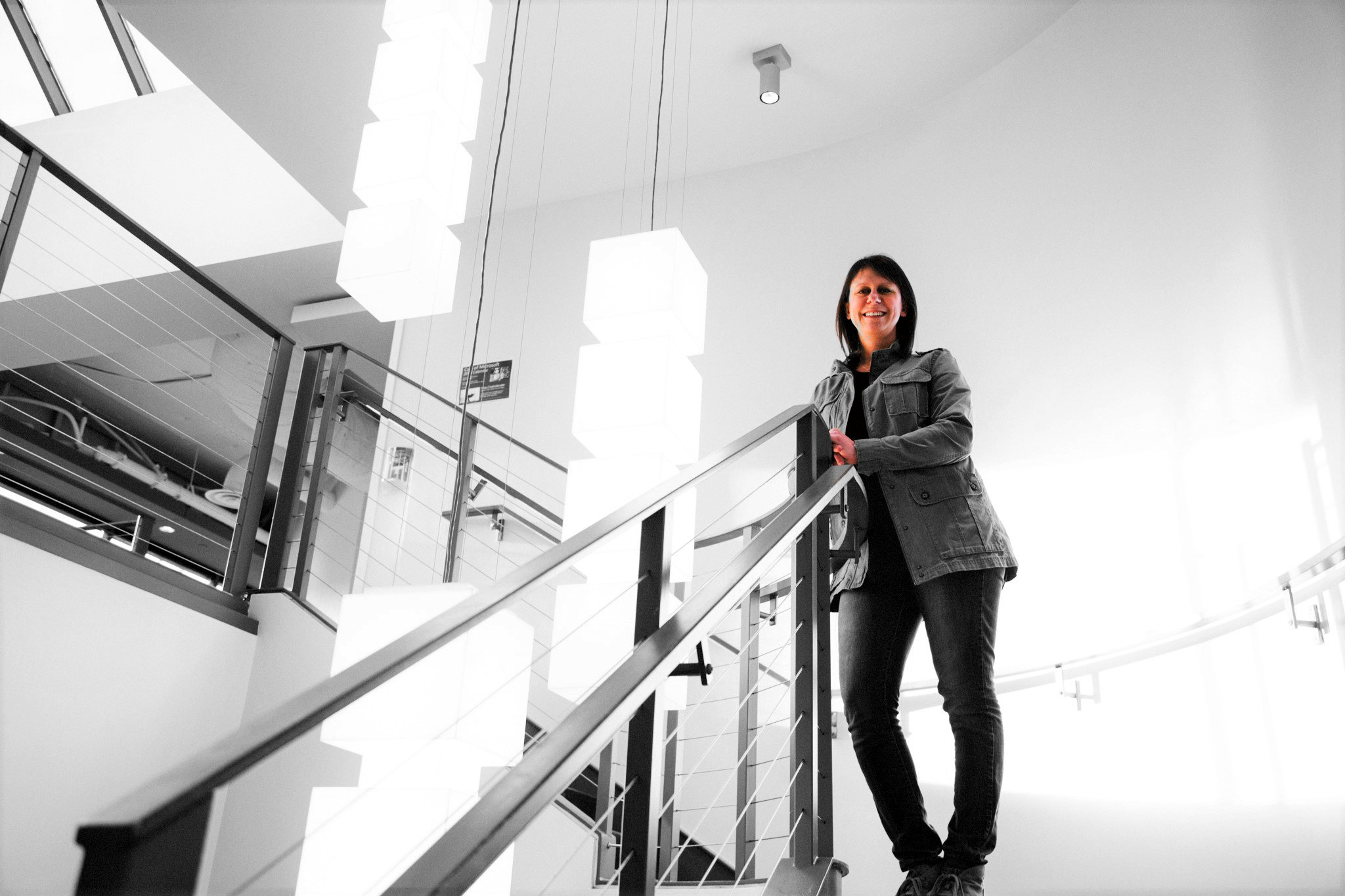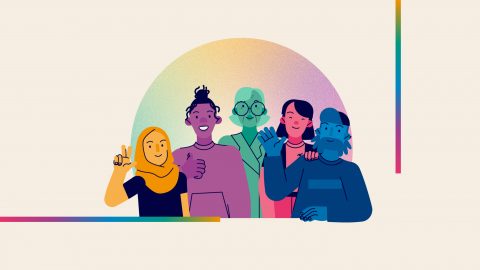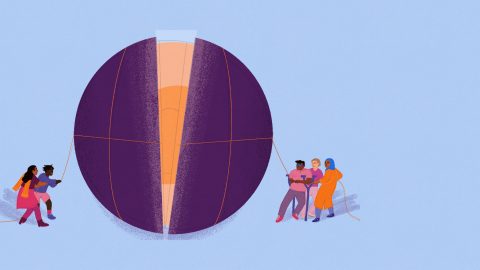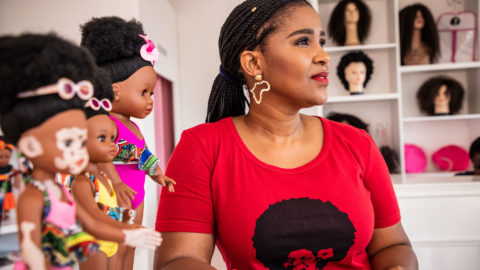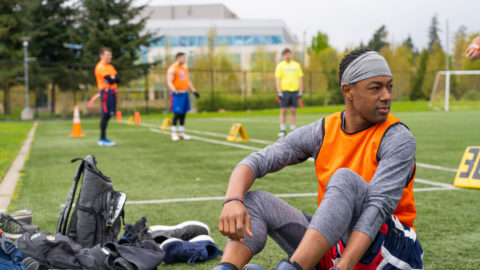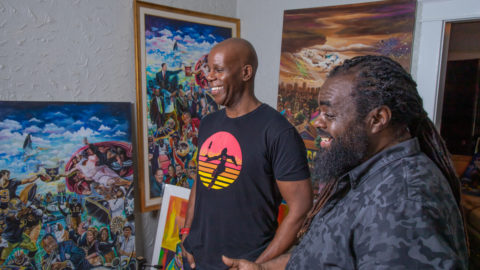How early career HR professionals kick-start their time at Microsoft
While influencing company culture
There’s an expression people use when they’re feeling overwhelmed: “Drinking from the firehose.” For newcomers to any large, global company, there’s so much to learn that it can feel like information overload.
What if there was a way for people to experience all the benefits of a large, global company, and at the same time, enjoy the advantages of a small, built-in support network? Early in career human resources (HR) professionals hired into Microsoft’s HR Trax program receive just that—all the beauty an enterprise company can offer, plus serious support that keeps program members from feeling overwhelmed.
“I talk about our culture shift”
The Trax program kick-starts an HR career at Microsoft. The company hires new graduates who’ve earned an M.A. or an MBA degree (or both) directly into the program while they’re interning. For two years, program members experience two different HR roles; each rotation lasts 12 months.
Emma Gutierrez, who’s in her first-year rotation of the Trax program, is working in a hybrid HR role in Silicon Valley. She spends half her time doing talent and program management, and the other half in an HR manager role, supporting the PowerPoint team. One of her responsibilities involves leading the region’s new employee orientation every Monday.
“I talk about our culture shift and walk through an example of how growth mindset is embraced. I also talk about how Satya Nadella, as a very humble leader, has helped the company make that shift,” she says. Gutierrez wants “new employees to understand how growth mindset is one of Microsoft’s most important attributes, so they feel like they can safely take risks and not be afraid they’ll be rebuked or fired.”
She has a high opinion of Microsoft’s values. As a summer HR intern in Redmond, Emma felt confident she could share what she considered to be “a provocative suggestion” with her manager. The manager encouraged her to share that idea with the broader team, including the director. “She amplified my voice instead of watering it down,” says Gutierrez. “Boring ideas might pass the bar but they don’t challenge us to think differently and improve.”
If you have fresh ideas they’ll be valued.
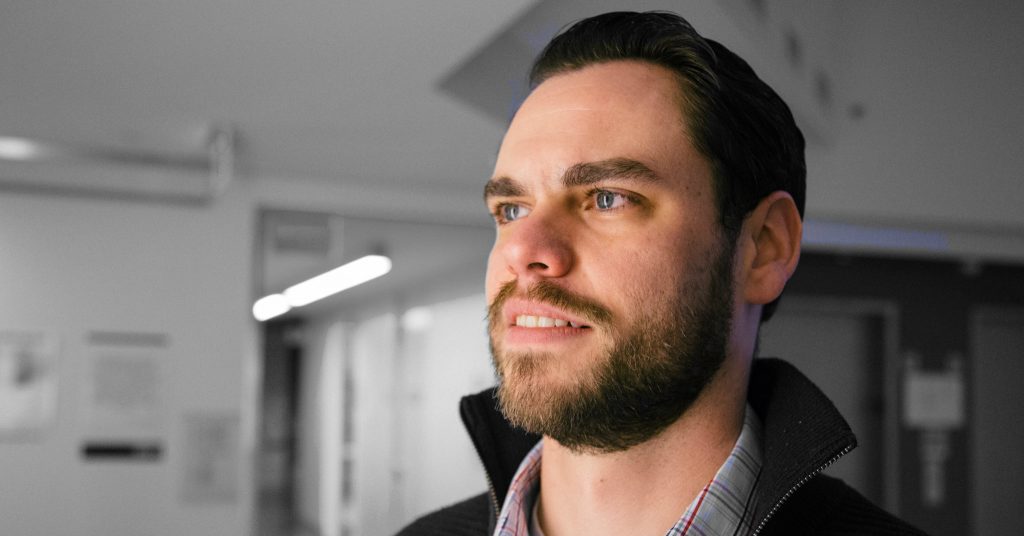 Rob Armstrong, on the Microsoft Redmond campus
Rob Armstrong, on the Microsoft Redmond campus
As someone who recently finished the Trax program, Rod Armstrong believes “an exciting time for HR. If you have fresh ideas they’ll be valued. You can try new and innovative things.” The company is working hard to adopt the concept of a “growth mindset��—the idea that people can grow from every experience, and that it’s good to take risks, even if some end in failure—because that’s how people learn and improve and innovate.
He began the program with a cohort of nine others; they all started in different areas of HR, including (but not limited to) compensation, HR management, and operations. He likes that his network went across functions; he now knows people in different areas of the business. “That was vital,” he says. “It’s really helpful to have others going through the same things—as you’re learning about HR here you’re also learning about the company. And it was great to start with that built-in support network.”
During Armstrong’s first rotation, he supported Marketing as an HR manager. “Not only did I learn a lot, but it also pushed me to figure out how to influence and impact the business.” He found learning influencing skills to be “the most challenging” aspect of that work. He spent his second year on the operations side, in Global HR Operations as a Process Excellence program manager within one of the company’s “Centers of Excellence,” which drive central strategy and support for Microsoft’s People priorities worldwide. “It was cool to learn about operations, how our systems work, and the structure of our HR tools,” he says. During that experience, he earned a Lean Six Sigma certification as part of his training and development.
“I learned so much in two years—it goes by really fast,” says Armstrong. “The program puts you into meaty roles, and you get to do challenging work. There’s a good chance you’ll get two very different experiences in the two-year timeframe.” Now that he’s completed the program, he feels “well prepared” for his current role as an HR manager for the Global Sales and Commercial Finance Team.
This past recruiting cycle, for the first time, the company hired people who hold undergraduate degrees into the program. However, they won’t automatically rotate into a new role after 12 months. Megan Hibpshman, who co-leads Trax, says, “they’ll have the choice to switch into a new role if they and their managers decide they’re ready.” But first, they need to gain a full understanding of the job they’re in. Even if they don’t switch roles, they stay in the program for the full two years.
Senior leaders are “highly invested” in Trax and meet with members frequently. New hires have this exposure to senior leadership throughout the two-year program.
Hibpshman enjoys how Trax recruits “come in with fresh perspective and energy. They’ve done their homework and they’re embracing the growth mindset. They’ve been able to latch on to that vision, push the boundaries and think a different way.” HR professionals at Microsoft get to be at the forefront of shaping the kind of company culture that encourages such creative thinking.

